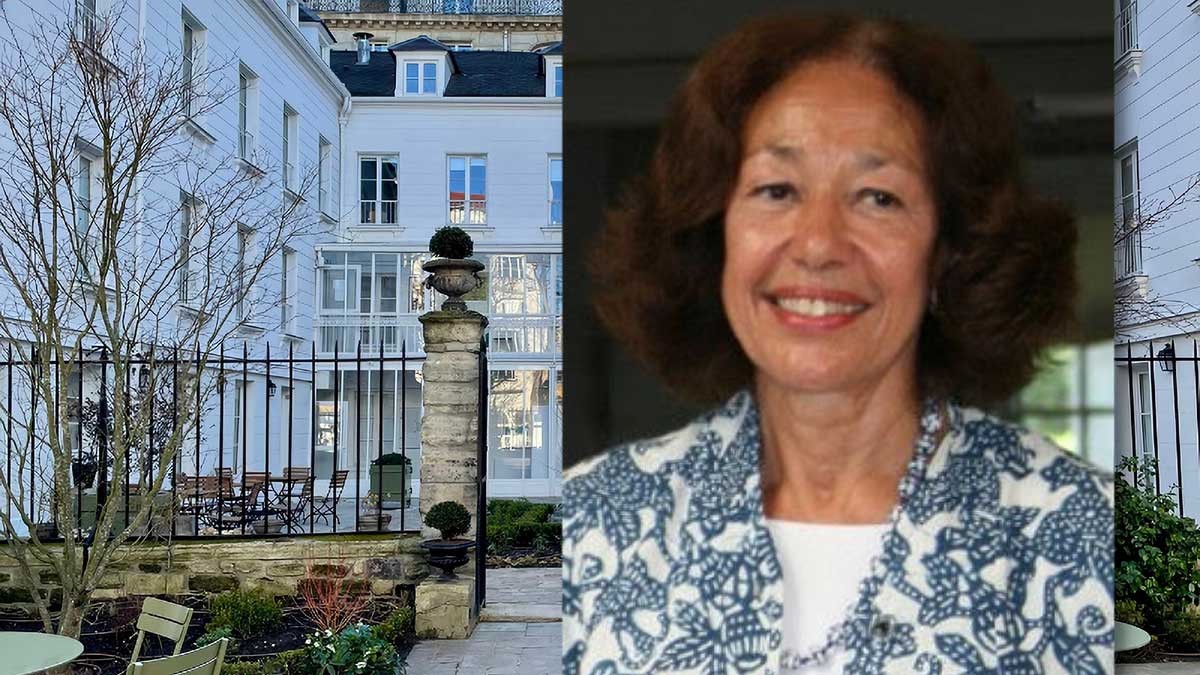Paris Center Stories: Geneviève Acker, president of the Barnard Club of Paris
Geneviève Acker (BC '61) is the former deputy director of the Franco-American (Fulbright) Commission in Paris.

Geneviève Acker, BC'61
President, Barnard Club of Paris
Former Deputy Director, Franco-American (Fulbright) Commission
Geneviève Acker is the former Deputy Director of the Franco-American (Fulbright) Commission in Paris. Since retiring, she has worked as a volunteer for AGIRabcd (Association Générale des Intervenants Retraités), a French retirees’ association which sends retired professionals on volunteer missions within France and internationally. She is currently responsible for managing missions in Eastern and Central Europe. We sat down with Genèvieve to talk about her career, her work with the Barnard Club of Paris, and her inspiration.
Can you tell us a bit about yourself?
Originally from Newport, RI, I hold a B.A. from Barnard College and an M.A. in French Literature from Middlebury College. A resident of France since 1963, I made my career (1965-96) with the Fulbright Scholarship program in France, as manager of the American Scholars’ program and Deputy Director. I was one of the founding members of WICE (Women’s Institute for Continuing Education) in Paris, and former Vice President of the Paris Alumnae Network (PAN). Since my retirement, I have been a volunteer Human Resources Manager at AGIRabcd (Association Générale des Intervenants Retraités), a French association of retired professionals who carry out volunteer consulting and training missions in France and abroad. I have done several missions myself in Ivory Coast, China, and Eastern European countries. Since 2007, I have been President of the Barnard Alumnae Club of Paris, which in addition to its bi-monthly book group discussing books by Barnard authors functions as an ongoing convivial support system where all Barnard alumnae are welcome, whether long-term residents or new arrivals.
Who are the women that have inspired you?
Hellen Keller, Eleanor Roosevelt, Ruth Bader Ginsberg, Angela Merkel, Simone Weil, and Gisèle Halimi.
What are you currently working on?
- Organization of bi-monthly book group meetings for the Barnard Club of Paris.
- Continuation of the activities of my 60th Barnard class reunion. Organization with a classmate in the U.K. of monthly “virtual cocktail parties.” gatherings on Zoom with an average of 15 participants, with the generous assistance of the Barnard Alumnae Affairs Office which accords us a free monthly Zoom slot. Scheduled for 12 ET, they include participants from all U.S. time zones plus the U.K. and France. Members suggest two topics for discussion at each session. We avoid: politics, our health, and the achievements of our grandchildren.
- Volunteer Human Resources Manager for a French association of retired professionals, organization and management of volunteer missions in Eastern and Central Europe and the Baltic Republics.
Can you talk about the similarities and differences that you have witnessed in the struggle for women’s rights in the U.S. and France?
France is a Latin country! The 1970s women’s movement here was confined to a small group of women, mostly left-leaning intellectuals, with very little participation and involvement on the part of working-class women. A generation later, great gains have been made in France for women’s rights, especially reproductive rights, as well as access to elite institutions of higher education, and professions previously dominated by men such as medicine, law, engineering, and architecture.
Since I have been a resident of France since 1963, I haven’t personally experienced the struggle for women’s rights in the U.S. But as perceived from afar: the women’s movement of the 1970s was more visible and vocal in the U.S., and gave birth in 1973 to Roe vs. Wade, the Supreme Court decision liberalizing access to abortion. In the past ten years,I have been very concerned to observe an apparent backlash of public opinion in some regions of the U.S., creating a conservative climate which may well lead to the reversal of that hard-earned right.
Looking back, what do you wish you had known when you were just beginning your career?
I wish that I had been thoroughly confident that I would succeed in building my professional career while raising two sons, without neglecting them or depriving them of the love and attention that they needed. This was difficult at first, since in the 1960s working mothers were rare and often harshly criticized. Fortunately with the valuable help of my supportive husband, it all worked out well.